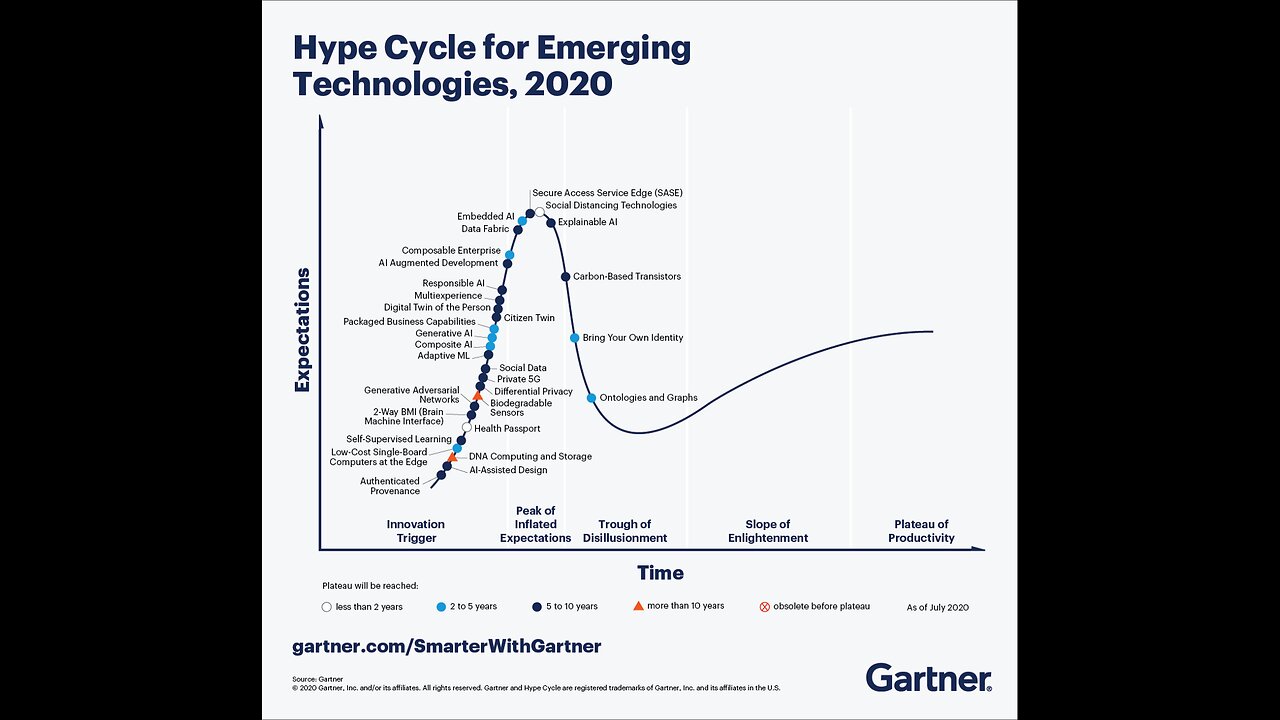Premium Only Content

For better or worse, Apple is avoiding the AI hype train - The Verge
🥇 Bonuses, Promotions, and the Best Online Casino Reviews you can trust: https://bit.ly/BigFunCasinoGame
For better or worse, Apple is avoiding the AI hype train - The Verge
Five minutes into Google’s I/O conference in May, Verge staffers started taking bets on how many times “AI” would be mentioned onstage. It seemed like every presenter had to say it at least once or get stuck with a cattle prod by Sundar Pichai. (In the end, we stopped betting and made a supercut.) Watching WWDC, though, the book ran in the opposite direction: would anyone from Apple mention “AI” at all? It turns out, no, not even once. The technology was referred to, of course, but always in the form of “machine learning” — a more sedate and technically accurate description. As many working in the field itself will tell you, “artificial intelligence” is a much-hated term: both imprecise and overdetermined, more reminiscent of sci-fi mythologies than real, tangible tech. Writer Ted Chiang put it well in a recent interview: what is artificial intelligence? “A poor choice of words in 1954.” Apple prefers to focus on the functionality AI provides Apple’s AI allergy is not new. The company has long been institutionally wary of “AI” as a force of techno-magical potency. Instead, its preference is to stress the functionality of machine learning, highlighting the benefits it offers users like the customer-pleasing company it is. As Tim Cook put it in an interview with Good Morning America today, “We do integrate it into our products [but] people don’t necessarily think about it as AI.” And what does this look like? Well, here are a few of the machine learning-powered features mentioned at this year’s WWDC, spread across Apple’s ecosystem: Better autocorrect in iOS 17 “powered by on-device machine learning”; A Personalized Volume feature for AirPods that “uses machine learning to understand environmental conditions and listening preferences”; An improved Smart Stack on watchOS that “uses machine learning to show you relevant information right when you need it”; A new iPad lock screen that animates live photos using “machine learning models to synthesize additional frames”; “Intelligently curated” prompts in the new Journal app using “on-device machine learning”; And 3D avatars for video calls on the Vision Pro generated using “advanced ML techniques” One of the most ambitious use cases for AI at WWDC was the creation of new 3D avatars for use in Apple’s Vision Pro headsets. GIF: Apple Apart from the 3D avatars, these are all fairly rote: welcome but far from world-changing features. In fact, when placed next to the huge swing for the fences that is the launch of the Vision Pro, the strategy looks not only conservative but also timid and perhaps even unwise. Given recent advances in AI, the question has to be asked: is Apple missing out? The answer to this is “a little bit yes and a little bit no.” But it’s helpful to first compare the company’s approach with that of its nearest tech rivals: Google, Microsoft, and Meta. Of this trio, Meta is the most subdued. It’s certainly working on AI tools (like Mark Zuckerberg’s mysterious “personas” and AI-powered advertising) and is happy to publicize its often industry-leading research, but a big push into the metaverse has left less space for AI. By contrast, Google and Microsoft have gone all in. At I/O, Google announced a whole family of AI language models along with new assistant features in Docs and Gmail and experiments like an AI notebook. At the same time, Microsoft has been rapidly overhauling its search engine Bing, stuffing AI into every corner of Office, and reinventing its failed digital assistant Cortana as the new AI-powered Copilot. These are companies seizing the AI moment, squeezing it hard, and hoping for lots of money to fall out. So should Apple do the same? Could it? Well, I’d argue it doesn’t need to — or at least, not to the same degree as its rivals. Apple is a company built on hardware, on the iPhone and its ecosystem in particular. There’s no pressure for it to reinvent search like Google or improve its productivity software like Microsoft. All it needs to do is keep selling phones, and it does that by making iOS as intuitive and welcoming as possible. (Until, of course, there’s a new hardware platform to dominate, which may or may not be emerging with the Vision Pro.) There’s only one area, I think, where Apple is missing out by not embracing AI. That’s Siri. The company’s...
-
 1:08:42
1:08:42
Winston Marshall
4 hours ago“This Is a Ticking Timebomb!” Trump’s Unlikely Coalition & The Woke Right w/James Lindsay
8.61K5 -
 24:32
24:32
Rethinking the Dollar
4 hours agoWhy Washington Will NEVER Fix the Debt Crisis w/ Paul Stone
159 -

Viss
4 hours ago🔴LIVE - PUBG New Extraction Shooter Coming Soon? - PUBG
13.7K2 -
 LIVE
LIVE
Major League Fishing
1 day agoLIVE! - Bass Pro Tour: Stage 3 - Day 1
274 watching -
 51:11
51:11
PMG
18 hours agoHannah Faulkner and Chloe Castillo | Is your music IMPACTING you?!
411 -
 1:07:36
1:07:36
Russell Brand
5 hours agoTariff War Begins: Trudeau Threatens Retaliation Against Trump – SF549
103K77 -
 DVR
DVR
vivafrei
4 hours agoGuest "Misfit Patriot" on Andrew Tate & Casey Anthony! Canada Goes Full Trade War! ACB = DEI?
66.9K28 -
 1:58:22
1:58:22
The Charlie Kirk Show
3 hours agoCharlie vs. Gavin Newsom | Jonathan "Lomez" Keeperman | 3.6.25
114K45 -
 1:15:59
1:15:59
Simply Bitcoin
4 hours ago $2.21 earnedCould The NEXT 24 Hours Change The 2025 Bitcoin Bull Market? | EP 1197
32.7K3 -
 49:57
49:57
The Dan Bongino Show
6 hours agoAnother Phony Narrative Crumbles + First Show In The New Studio! (Ep. 2437) - 03/06/2025
802K2.18K